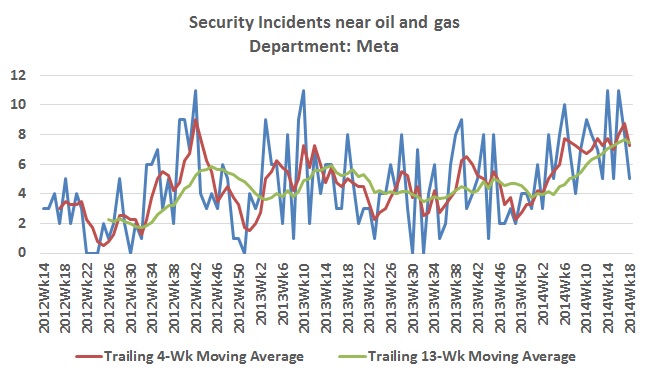
Rainfalls have fell short of expectations to keep hydro-energy on at full, but authorities say that the energy is well shielded against issues that could cause supply shortages, mainly due to a strong supply of gas. However generators do not want to see gas exports to Venezuela resume just yet.
Criticism of the General Royalty System has not stopped the National Planning Department (DNP) director from promoting its impact and future, the head of the DNP royalties department visits to inspect projects in Casanare and a VP candidate lashes out at a event after receiving questions about the royalty issue. These stories in our roundup of royalty related events and reports.
Ecopetrol (NYSE:EC) has unveiled a US$12.8M water injection plant in Huila that it hopes will help keep its production numbers up in the Dina Terciarios field.
Óscar Iván Zuluaga’s win on Sunday, May 25 over incumbent President Juan Manuel Santos in the first election round has positioned the peace talks as the defining topic for the second presidential round coming on June 15th.
GasThe Ministry of Mines and Energy Amylkar Acosta welcomed the announcement of a US$249M gas recovery program being implemented jointly by Ecopetrol (NYSE:EC) and Chevron (NYSE:CVX) that he says will extend Colombia’s gas reserves by eight years.
Ecopetrol (NYSE:EC) gave explanations as to why it would not sign an agreement with Casanare transportation companies that covered local hiring practices, which has been discussed with the NOC participation over the last two years. This and other press reports involving roadways and the oil industry
Through the Business Association for the Development of Orinoquia (Asorinoquia), regional government entities are looking to create public-private initiatives that would compensate for the lack of hydrocarbons royalties and finance needed infrastructure investments.

We thought that Llanos was appearing more frequently as a top source of security incidents in our weekly summary so we looked at the department of Meta, the largest and most important department for oil production in Colombia.
China’s role as the world’s leader in the consumption of raw materials and its growing interest in the Latin American energy and commodities sectors make Colombia an attractive partner, but today the Asian nation sees Colombia as only a coffee maker, says an expert on China-Latin American relations.
Ecopetrol says that it has been busy in Barrancabermeja where it says it invests CoP$206B (US$107.4M) annually into Corporate Social Responsibility Projects (CSR). That and other CSR programs from Equion, Parex and more.